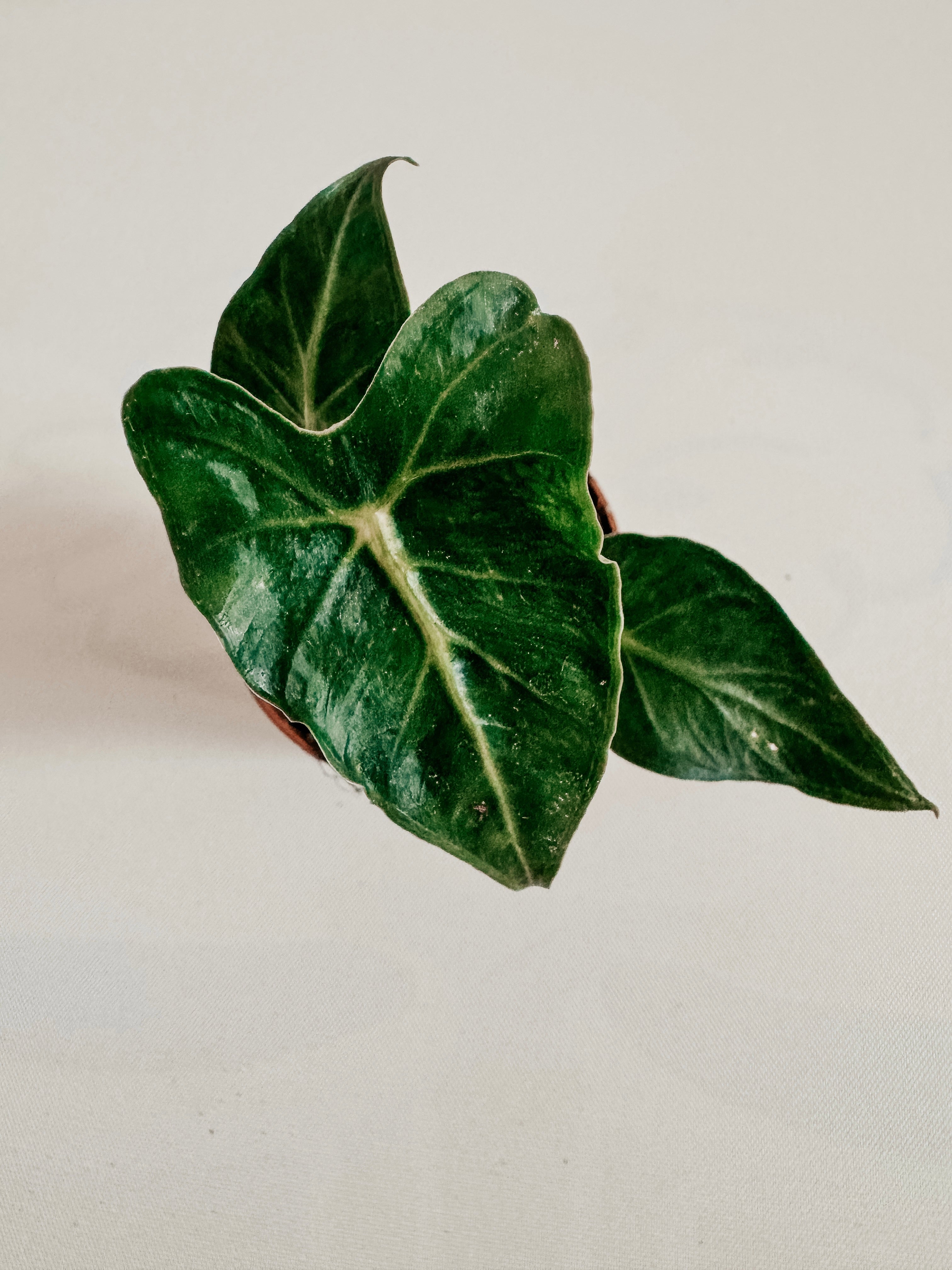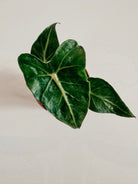Alocasia Frydek Tattoo
Couldn't load pickup availability
🌿 Alocasia Frydek “Tattoo” Care Guide
A rare and striking variant of Alocasia micholitziana ‘Frydek’, the “Tattoo” form is known for its dramatic velvety green leaves with intricate vein patterns or subtle variegation. It’s a bit more delicate than the standard Frydek and thrives best in warm, humid, stable environments.
☀️ Light
-
Provide bright, indirect light.
-
Avoid harsh direct sun — it can scorch the velvety leaves.
-
Too little light causes dull colors and slow growth.
-
Ideal spot: near an east-facing window or a bright area filtered through sheer curtains.
🌡️ Temperature
-
Keep between 20–28°C (68–82°F).
-
Avoid air conditioners
-
Consistency matters — sudden changes can cause leaf loss.
💧 Watering
-
Water when the top 2–3 cm (1 inch) of soil is dry.
-
Water deeply until excess drains out.
-
Never let it sit in standing water — roots are prone to rot.
-
Reduce watering slightly during cooler or low-light months.
💡 Tip: The soil should be moist, not soggy — aim for a “damp sponge” feel.
🌫️ Humidity
-
Prefers high humidity (60–85%).
-
Use a humidifier or place the pot on a pebble tray with water.
-
Grouping with other plants also helps.
-
Brown leaf edges usually mean air is too dry.
🌱 Soil
-
Use a light, well-draining aroid mix:
-
40% coco coir or peat
-
30% orchid bark
-
20% perlite or pumice
-
10% charcoal or sphagnum moss
-
-
The mix should hold moisture while letting air reach the roots.
🌾 Fertilizer
-
Feed every 3–4 weeks in spring and summer.
-
Use a balanced, diluted fertilizer (½ strength).
-
Skip fertilizing in fall and winter when growth slows.
🪴 Repotting
-
Repot every 1–2 years, ideally in spring.
-
Choose a pot just slightly larger than the current one.
-
Ensure it has good drainage holes.
-
Handle roots gently — Alocasias dislike disturbance.
🌘 Dormancy
-
In winter or cooler months, growth may slow or pause.
-
Reduce watering but don’t let the soil dry completely.
-
Keep warm and humid to prevent full dormancy.
⚠️ Common Issues
-
Yellow leaves: Overwatering or poor drainage.
-
Brown tips: Low humidity or too much fertilizer.
-
Droopy leaves: Irregular watering or temperature stress.
-
Fading variegation: Not enough light.
🐾 Toxicity
All Alocasias contain calcium oxalate crystals — toxic if ingested.
Keep out of reach of pets and children.


